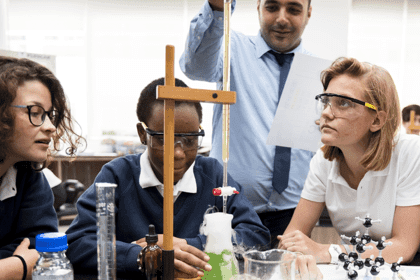
‘State of the nation’ report of UK primary science education
The vision of our five-year primary science campaign is that all pupils will experience an exciting, inspiring and relevant science education at primary school. This report looks at primary science education delivery across the UK.
What’s inside
- facts and figures on UK primary science education – from how science is taught, to what pupils think of it
Who this is for
- UK policy makers
- UK primary school educators
- anyone interested in primary science education in the UK
At the start of our primary science campaign, we surveyed science leaders, teachers and pupils across the UK. We'll be repeating this research later, so we can track the state of primary science education over time.
Key findings
- On average, UK primary schools teach science for 1 hour and 24 minutes a week. Only 42% teach science for two or more hours a week, which we recommend.
- 82% of science leaders ‘strongly agree’ that it’s important for pupils to study science.
- 30% of survey respondents think science is ‘very important’ to their senior leadership team. This is compared to 83% for English and 84% for maths.
- 52% of science leaders have had external continuing professional development for a day or more in the past year to help them lead or develop science in their school.
- 25% of teachers are concerned that they may not be able to answer children's questions about science.
- When identifying what support their school has given to improve science teaching in the past year, teachers report:
- their school providing access to lesson plans and materials (34%)
- coaching or mentoring from their science leader (31%)
- science training from their science leader (23%)
- no support for improving science teaching (30%).
- When asked how much they like science at school, 44% of pupils say they 'like it a lot’ and 41% ‘like it’.
- 30% of pupils would like a science-related job when they grow up. Boys are more likely to want a job in engineering (or a related industry) or to become a ‘scientist’. Girls are more likely to want to become a vet (or another job related to animals) or pursue a career in healthcare or medicine.
